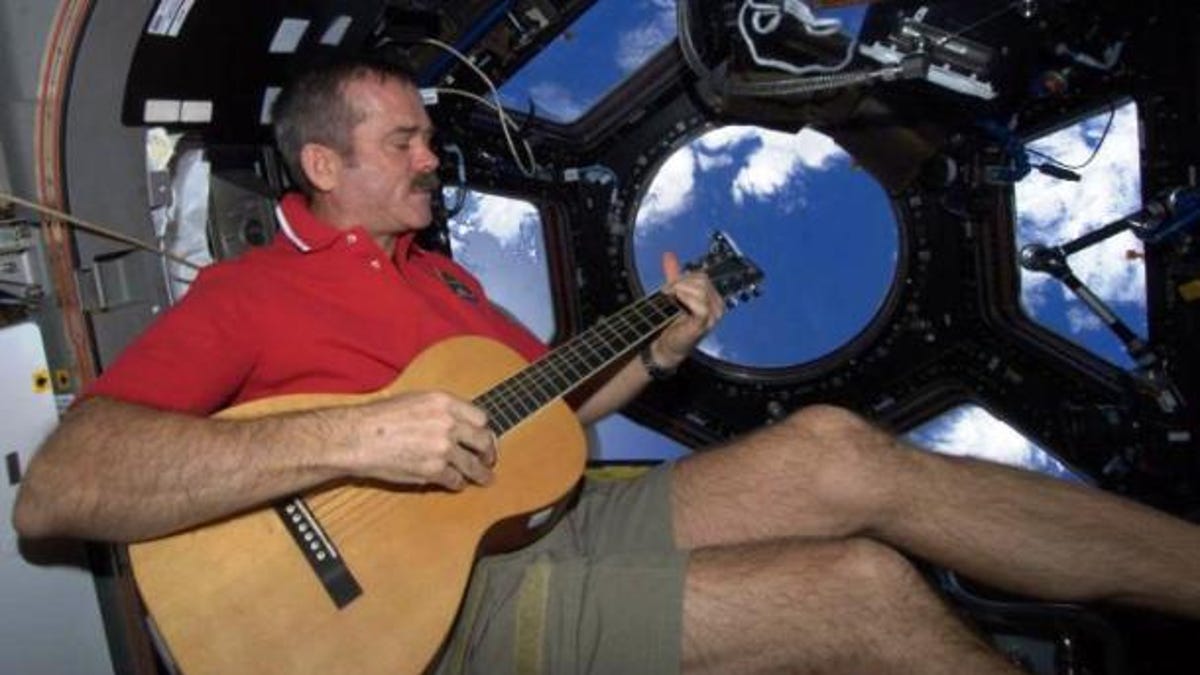NASA astronauts aboard ISS to host live Google+ Hangout
Curious how life changes without gravity? Three astronauts living in the International Space Station will answer those questions and more in a February 22 Google+ Hangout.

Astronauts in the International Space Station have already explained how to clip fingernails and play guitar while orbiting 240 miles above the Earth. But what about all those other questions people may have about life in space?
They can be answered in an upcoming Google+ Hangout with three of the astronauts aboard the ISS -- Kevin Ford, Tom Marshburn, and Chris Hadfield.
NASA announced today that it is hosting its first live Google+ Hangout from space. It's to happen from 11 a.m. to 12 p.m. EST on February 22. The space agency is accepting questions in advance up through February 12. To have a question considered, users must upload a 30-second or less video clip to YouTube with an #askAstro tag.
Google+ Hangouts let up to 10 people chat face-to-face, but thousands more can watch the discussion. People interested can watch the Hangout on NASA's Google+ page or its YouTube channel. Many of the questions selected to be answered will be those that were pre-recorded, but fans can also submit real-time questions on NASA's Google+, Twitter, and Facebook pages. Astronauts on the ground might answer some of the questions.
Hadfield and Ford launched into space on the Russian Soyuz spacecraft in December. They joined Marshburn, who was already stationed on the ISS, to conduct science experiments and carry out station maintenance. Most astronauts stay aboard the ISS for six months.
"Their life aboard the station in near-weightlessness requires different approaches to everyday activities such as eating, sleeping and exercising," NASA said in a statement.

